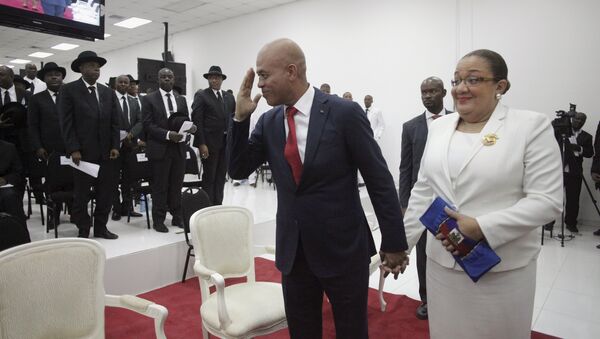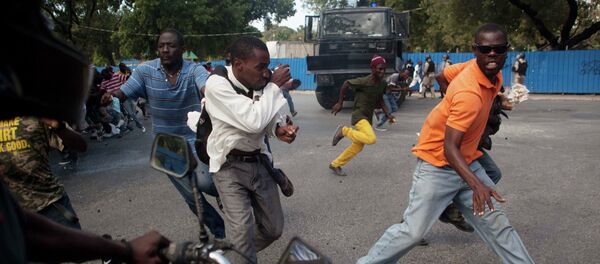Having overruled the Provisional Electoral Council of Haiti, "they more or less brought Martelly in through illegal means", Ives told Loud & Clear host Brian Becker. Pressured by OAS and then-Secretary of State Hillary Clinton, Martelly had a shaky start, and, during his presidency, managed "to duplicate the duvalierist regime of repression, corruption, arbitrariness and increasingly became unpopular." The fraud and violence marking the 2015 elections was a breaking point, as people didn't trust the results. A third voting round was blocked by demonstrations, ending when Martelly left office with no government to replace him.
"People came to see very quickly that if you don't change the fundamentals in the country: the ownership of the land, the ownership of the means of production, etc, you are not going to get far," Ives stated.
"We've seen the same process in other countries that kind of followed Haiti's example, like Venezuela, Bolivia etc, where the empire of the United States and its allies with their local minions have found ways to undermine, either rapidly or over long term, a progressive president."
He noted that there have been changes among Haitians that give hope for a balance to be reached.
"Now people are really starting to think ‘We need to go further and faster'. There are a lot of popular organizations… They are talking to each other and trying to form…a new kind of front," he said. "I'm very optimistic that given Haiti's history…this could happen very quickly."




